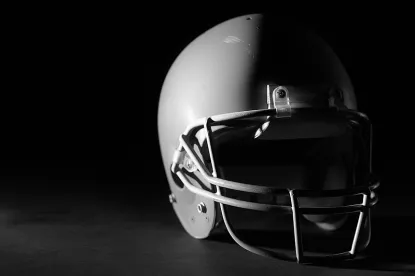The recent high-profile lawsuits by former players of the National Football League (NFL) and National Hockey League (NHL) have brought to the forefront the issue of long-term, concussion-related injuries in athletes, which is not limited to the world of high-contact professional sports.
A report by the Institute of Medicine (“IOM”) and the National Research Council of The National Academies (“NRC”) concludes that youth sports, such as field hockey, wrestling, women’s lacrosse and soccer, provide as much, if not more, danger of concussion than football and ice hockey. Other studies appear to indicate that female athletes may be at a greater risk of head injury.
Over the past two years, both the Ivy League and the PAC-12 have instituted rules to limit contact during football practices in order to reduce the exposure of head trauma to their athletes. Other conferences are considering similar restrictions. Recently, the NCAA was hit with a flurry of lawsuits—some of them class actions—alleging that the NCAA was negligent in its care of its student athletes, suggesting that the NCAA should have been aware of the long-term effects of concussions and that it failed to protect its athletes. While most of the suits allege injury by former college football players, there also are similar allegations by men’s and women’s soccer and ice hockey players.
The IOM Committee Report suggests that more research is needed and urged the NCAA to “develop, implement, and evaluate the effectiveness of large-scale efforts to increase knowledge about concussions and change the culture-social norms, attitudes, and behaviors surrounding concussions among elementary school through college-aged youth and their parents, coaches, sports officials, educators, trainers, and health care professionals.”
The Report also states that sweeping changes may be required in the areas of protective equipment, rules enforcement, and the negative perception by athletes for self-reporting concussion symptoms.
It should come as no surprise that the wave of concussion-related lawsuits has reached high school sports, as well. In Mississippi, the father of an 11th-grade football player filed a class action lawsuit on behalf of all current high school football players in the country. The complaint in Jobe v. NCAA, et al., alleges that it is the responsibility of the NCAA and the National Federation of State High School Associations (NFHS) to provide high schools with current concussion-risk information and require schools to implement concussion-management plans. It seems only a matter of time before similar lawsuits are filed against elite travel programs, Amateur Athletic Union (AAU) programs, and other youth sports organizations.
Colleges and universities, high schools and youth organizations should continue to closely monitor these developments, and remain proactive in protecting the health and safety of their student-athletes.
Peter Torncello also contributed to this article.




 />i
/>i
